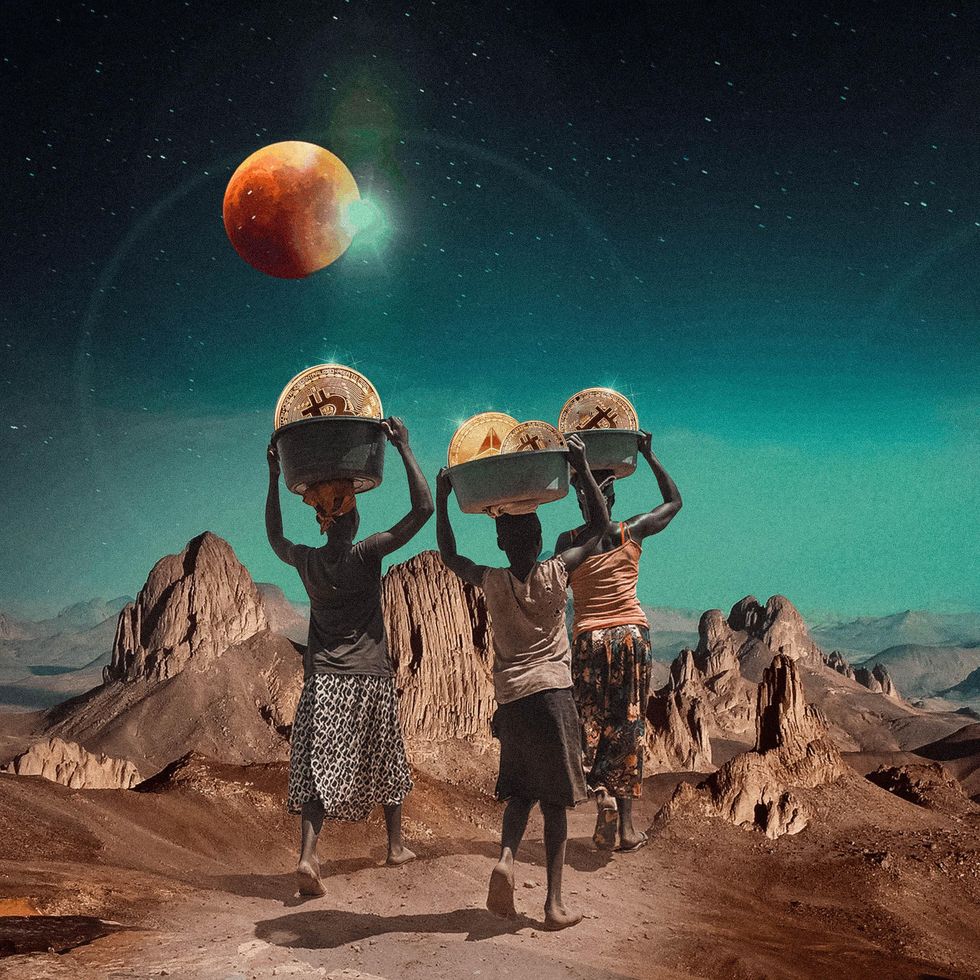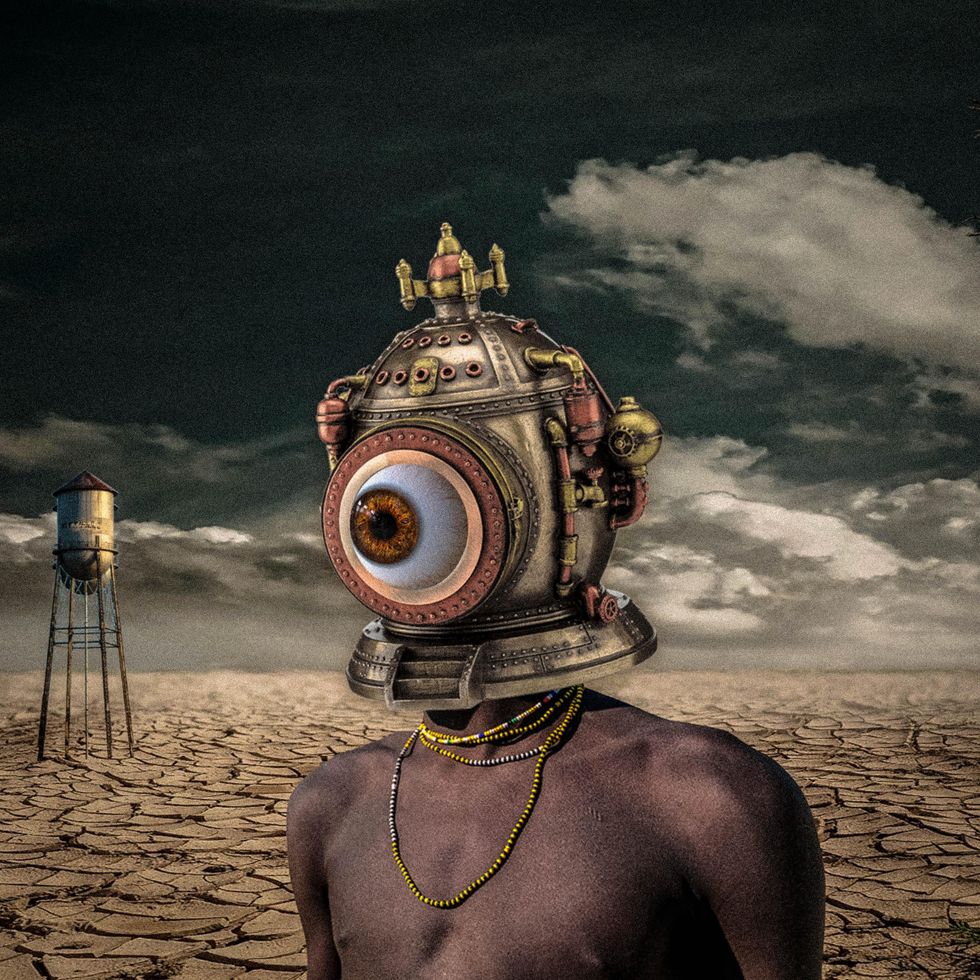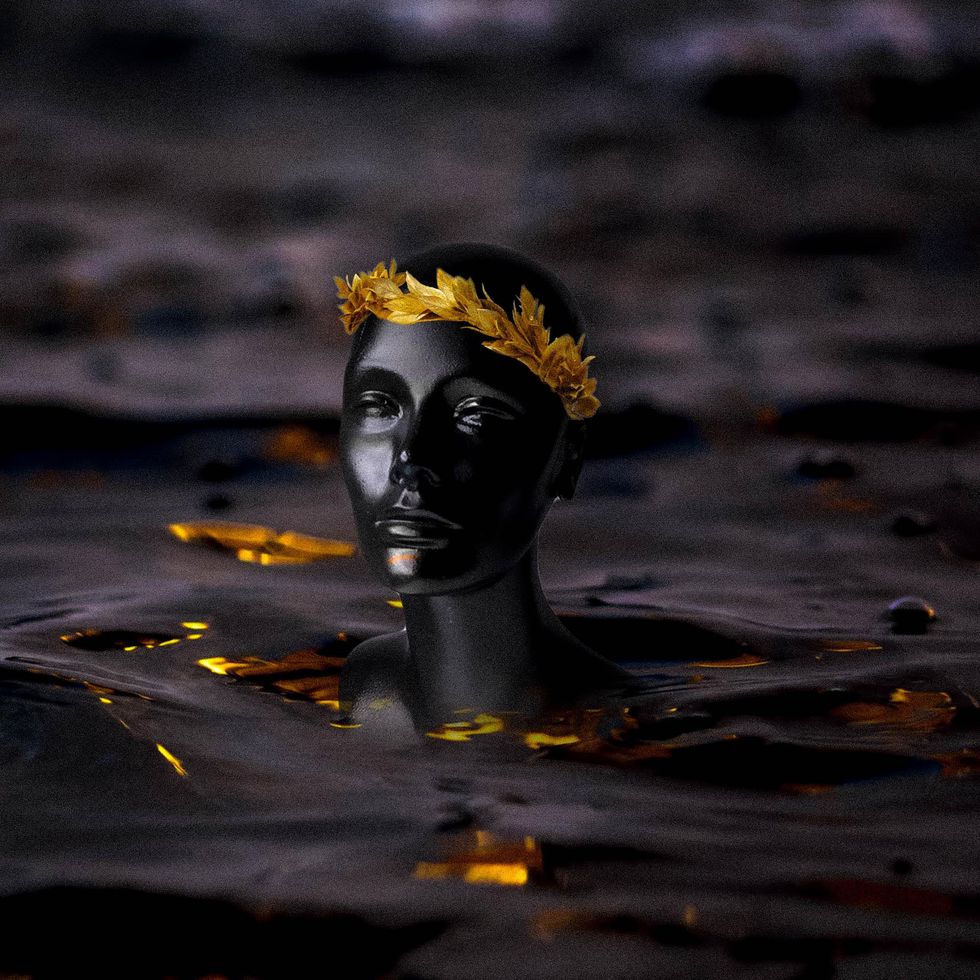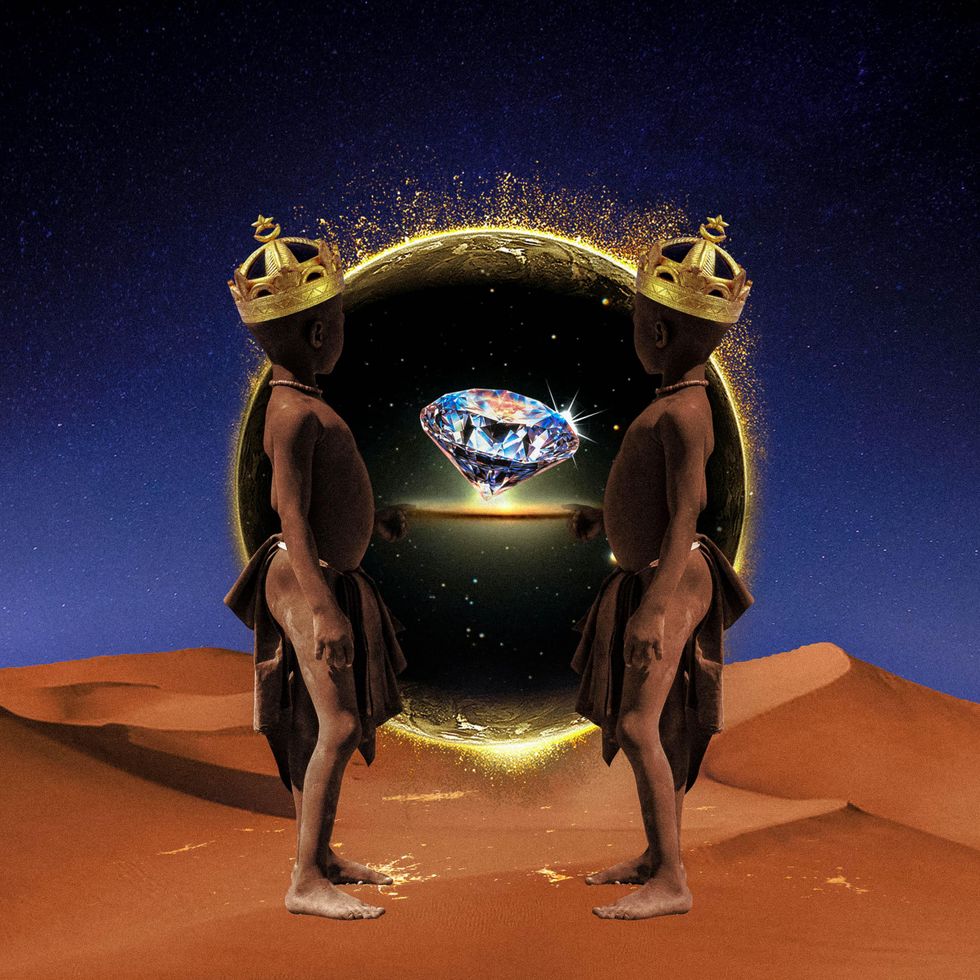Jacque Njeri On What The NFT Market Could Mean For The Continent
We spoke with the Kenyan multi-disciplinary artist about her relationship with digital art and what an African NFT market could mean for the continent.
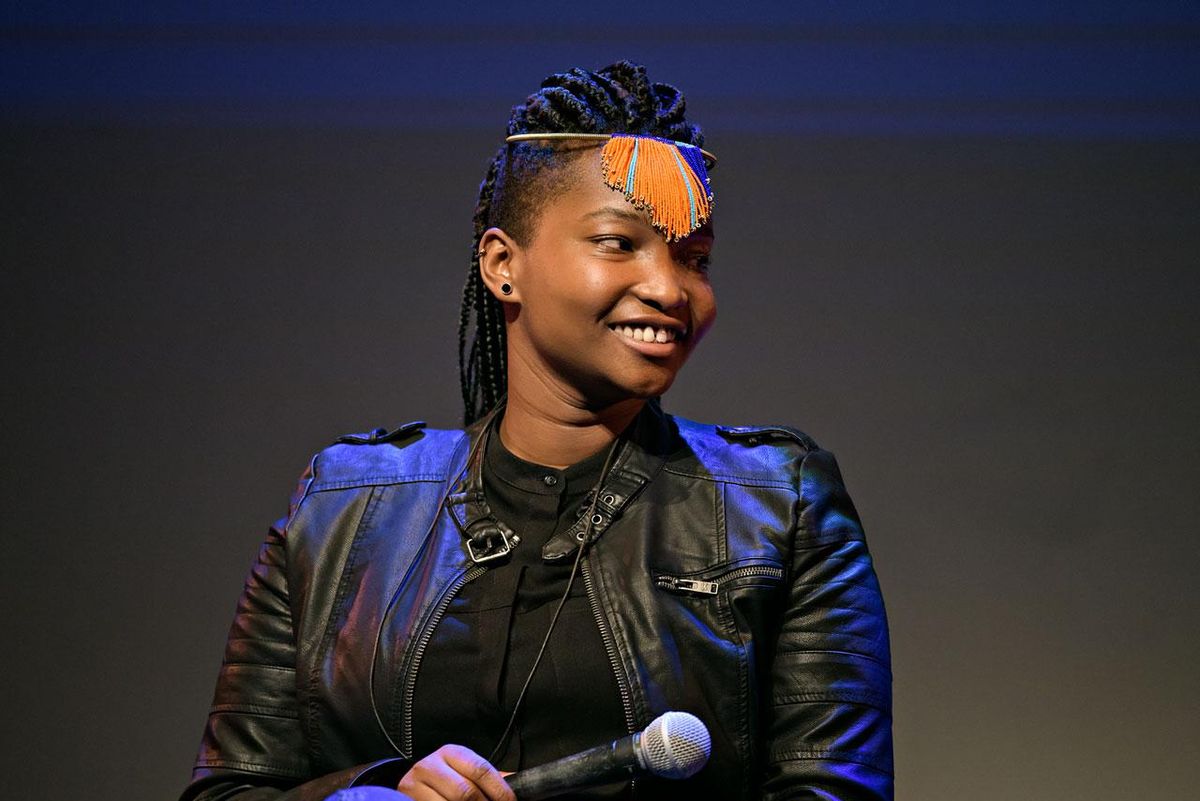
Kenyan multi-disciplinary design creative Jacque Njerihas found solace in "creating things and seeing the world". The University of Nairobi graduate has mastered her vision of what a modern, technologically advanced Africa looks like through recent projects "Maasci" and "Genesis". Through her art, Njeri conveys images and characters in feministic ways, intending to empower the way African women exist and see themselves in the world.
"Addressing culture through projected extraterrestrial realities", Njeri's science-fictional interpretations of African culture and excellence are sophisticated and clearly the work of someone who loves their people. So far, all of Njeri's work has manifested as homage to her Kenyan culture and ancestors, often emphasising the crucial role of the matriarch.
Njeri has been a keen participate in the world of Non-Fungible Tokens (NFTs) and is currently in a residency with NFT hot spot site Voice. As the NFT game changes on the continent, and we look to avoid using the West as the standard, Njeri continues to speak with her fellow African creators on how to create space for themselves, as well as share recipes for success.
We spoke with the Kenyan artist on her relationship with digital art, and the knowledge and discipline that goes into making it big in the world of online art sharing.
Responses have been edited for length and clarity.
We last spoke in 2017, what have you been up to over the last few years?
I was lucky enough to showcase my project, “Maasci” around Europe before COVID got in the way of travel. Since then, I curated a project called ‘Genesis’, based on the Gikuyu people of Kenya, and the myths that surround them. ‘Genesis’ is a modern futuristic interpretation of a matriarch and a project for and from my own tribe.
You’ve been in the digital art space for a while now, what about it has kept your interest for so many years?
I’ve been creating through digital art since my younger days — it’s an innate need and I couldn’t imagine doing it any other way. I can’t turn it off. I started out as a graphic designer and have always loved how dynamic digital creations are, and how different software present different learning opportunities and grounds for experimentation.
As an Afrofuturist artist yourself, do you think the growth in global interest has helped or hindered the industry?
I would say it helped, in the sense that it put a spotlight on the genre. It’s led to the popularization of trailblazers in the genre, and the emergence of new artists who are expanding the scope through which African art was viewed in different fields."Thayu
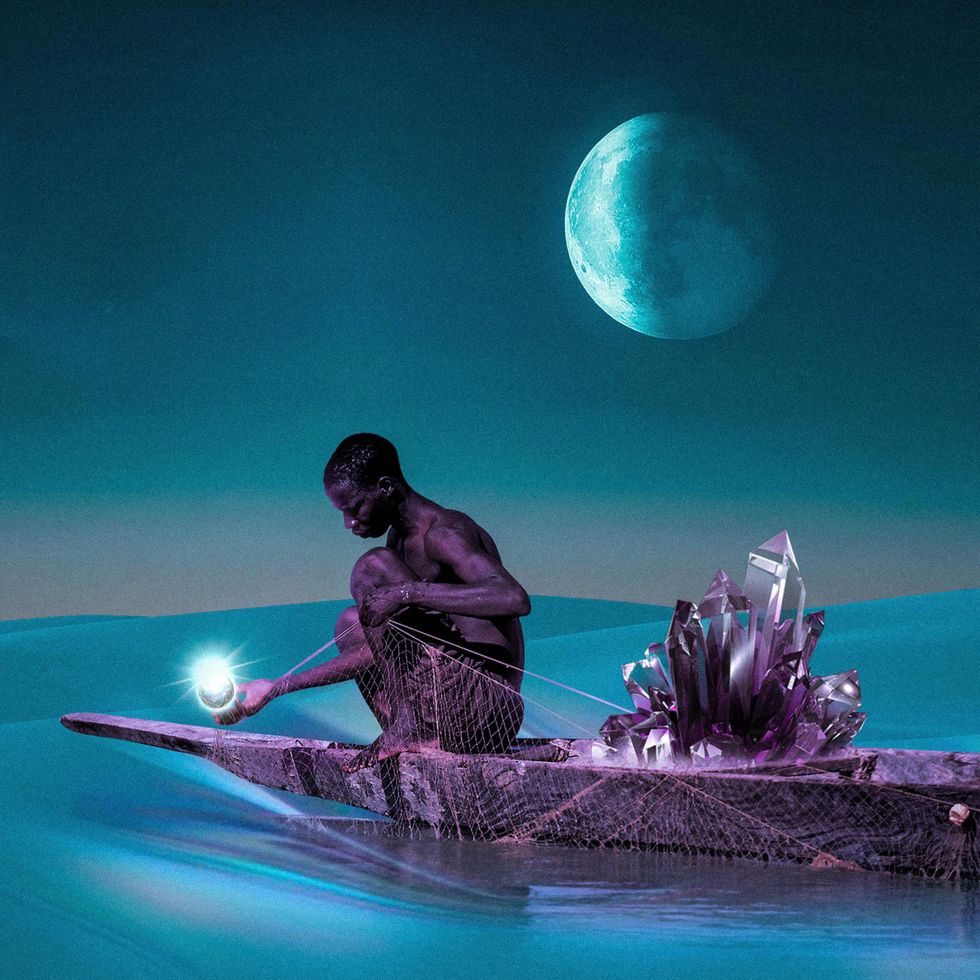
How did you get into the NFT space?
The essence of Afrofuturism is advancement in technology, advancement in science, and the perspective of the future. Me participating in the NFT space is an application of this message that we’re trying to pass across. We’re actualizing this message.
I’ve been lucky to make connections in my artistic journey that put me on new trends in technology, design, and art. I’m always looking to expand in skill and knowledge, and NFTs are right down my alley.
What do you think the NFT marketplace could mean for African artists?
I think it presents a fair playing field, in that it cuts through the traditional route of having middlemen sell your art for you, on a global scale. It places the artist in the center of it.
Traditionally, you’d have to be scouted by curators in big museums or galleries in order to have a moment on a global platform. The NFT market breaks those barriers. So long as you’re able to put your work online, you have a platform to compete with practically any other artist in the world.
What has your experience been?
It’s been great so far, and an excellent opportunity to learn. I just completed my NFT residency at Voice, and I hope the experience I gained there opens me up to more opportunities to not only sell my own art but bring more artists to the field.
I haven’t broken any barriers as yet, because, when you’re reading about it, it seems as easy as I’ve told you; create artwork, put it online, earn money. But, it takes a lot more work than that. There’s the marketing aspect, the research and understanding of the ‘back end’ of the art industry, understanding cryptocurrencies, and all of the terminology that comes with knowing how NFTs work. You have to educate yourself beyond creating the work. With my experience and the groundwork I’ve put in, I’m knowingly waiting for the fruits of it.
Do you think there are resources for African artists to be successful in the NFT space?
The resources and architecture are in place, as there are many crypto companies setting roots in Africa. It’s now our responsibility to place ourselves in the center and take advantage. Western NFT marketplaces are flooded and financially favorable to the early adopters, so the emergence of NFT marketplaces specifically for African artists will provide an even playing field for us to be successful.
I don’t think enough artists are getting involved, though. I guess because it’s very new, there are a lot of general misconceptions about cryptocurrency. But, in the last few months, I have witnessed marketplaces born and bred in Africa coming up, so it’s promising.
Do you see any downsides or dangers?
Apart from the unpredictability of the market, there have been arguments about cheapening the richness of authentic art altogether, and the loss of the intricacy taken to create art traditionally. Right now, a tweet screenshot is considered an NFT – It’s as if anyone can be an artist. Additionally, transferring into the digital realm would indeed deny the opportunity to artists to are not tech-savvy.
The market has also become flooded, there is so much competition right now. Artists who learned about it earlier had a head start.
- This Kenyan Artist Imagines Sending the Maasai People Into Space ... ›
- Is the African Fashion Industry Ready for the Metaverse? - OkayAfrica ›
- 5 Artists Leading Nigeria's NFT Scene ›
